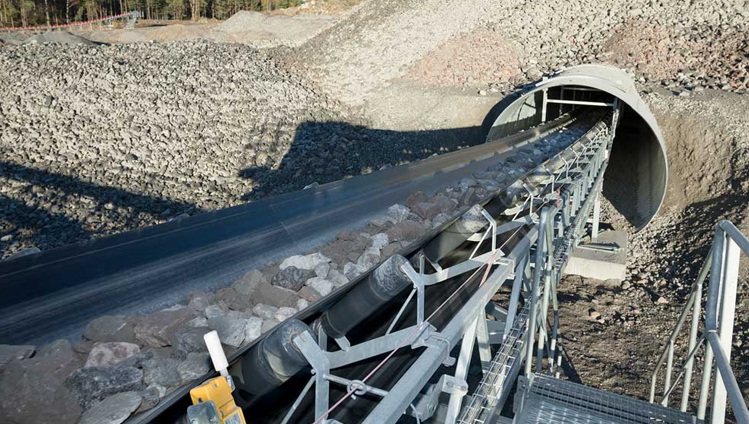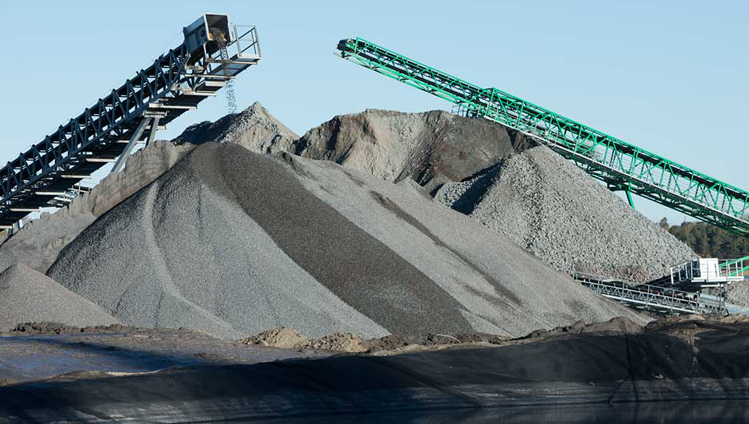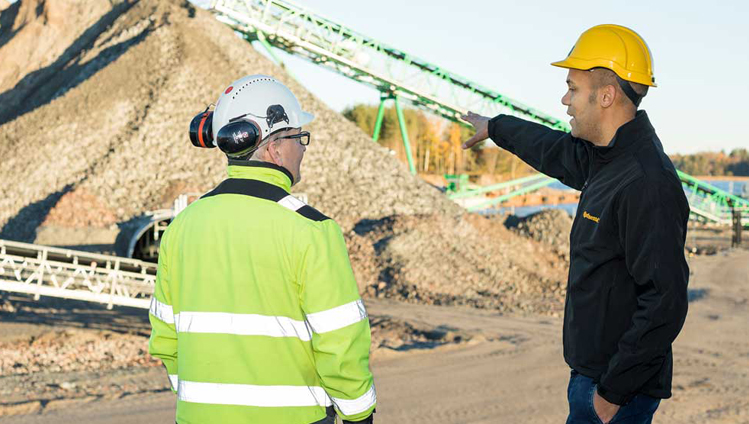- Products & Solutions
- Compounds & Sheetings
- Conveyor Belt Systems
- Fluid Handling
- Power Transmission
- Printing Technology
- Sealing Systems
- Surface Materials
- Suspension & Anti-Vibration
- Automotive Technologies
- Tires
- Industries
- Agriculture & Forestry
- Aerospace
- Construction
- Energy Management
- Food Chain Processing
- Home, Garden & Leisure
- Material Handling
- Mechanical & Plant Engineering
- Mining
- Industrial Safety
- Printing
- Rail Transport
- Ships, Ports & Sea
- Two Wheelers
- Commercial Vehicles
- Passenger Cars
- Media
- Press
- Stories
- Social Media
- Awards
- Fairs & Events
- Document Center
- Compounds & Sheetings
- Rubber Compounds
- Elastomer Sheeting
- Conveyor Belt Systems
- Material Handling
- Processing & Special Belts
- Conveyor Services
- Fluid Handling
- Passenger Cars
- Commercial Vehicles
- Industrial Vehicles
- Two-Wheelers
- Collapsible Tanks
- Industrial Hoses
- Hydraulic Hoses
- Oil & Gas Hoses
- Renewable Energy Solutions
- Crimper
- Power Transmission
- Commercial Vehicles OE
- Passenger Cars OE
- Drive Belts Automotive Aftermarket
- Agriculture vehicles & machines
- Industrial Applications
- Motorbike Drive Belts
- Printing Technology
- Printing Blankets
- Flexo Printing Plates
- Coating / Varnishing
- Sealing Systems
- Vehicle Applications
- Industrial Applications
- Surface Materials
- Mobility & Transportation
- Living Spaces
- Protection & Health
- Mechanical Engineering
- Sustainable Surfaces
- Surface Technologies
- Design
- Services & Tools
- Coil Coating
- Suspension & Anti-Vibration
- Passenger Cars
- Light Trucks
- Commercial Vehicles
- Industrial Vehicles
- Marine
- Machines & Equipment
- Railway
- Commercial Vehicles OE
- Accessory Belt Drive
- Fan Drive
- Mild Hybrid
- Mobility & Transportation
- Passenger Cars
- Commercial Vehicles
- Agricultural Vehicles
- Construction Vehicles
- Material Handling Vehicles
- Marine
- Railway
- Passenger Cars
- Interior
- Chassis & Body
- Powertrain
- eMobility
- Passenger Cars
- Interior
- Chassis & Body
- Exhaust Gas System
- Powertrain
- eMobility
- Vehicle Applications
- Brake Systems
- Chassis
- Steering Gear
- Engine Management
- Low-friction Elastomers for Seals
- Printing Blankets
- CONTI-AIR® Blanket Technology
- PHOENIX Xtra Blankets
- Vulcan
- Rollin
- Printec
- Sava
- Material Handling
- Steelcord Conveyor Belts
- Textile Conveyor Belts
- Steep Incline Conveyor Belts
- Enclosed Conveyor Belts
- Solid Woven Conveyor Belts
- Steel Mesh Conveyor Belts
- Passenger Cars OE
- Accessory Belt Drive
- Mild Hybrid
- Camshaft Drive
- Oil Pump Drive
- Water Pump Drive
- Steering Drive
- Brakes
- Body Control
- Interior Drives
- Systems Expertise
- Commercial Vehicles
- Cabin & Interior
- Chassis & Body
- Exhaust Gas System
- Powertrain
- eMobility
- Storage and Transport of Liquids
- Flexo Printing Plates
- CONTI Laserline
- Axcyl
- Light Trucks
- Axle Air Springs
- Hydro Bodymounts
- Living Spaces
- Interior Design
- Home Decoration
- Exterior Design
- Industrial Applications
- Elastomer Sheeting
- Expansion Joints
- Diaphragms
- Diaphragm Materials
- Gas Holder Diaphragms
- Processing & Special Belts
- Drive & Movement
- Filtering & Draining
- Seeding & Harvesting
- Conveyor Services
- Field Service
- Digital Solutions
- Service Material
- Technical Consulting & Training
- Tools & Equipment
- Accessories & Components
- Commercial Vehicles
- Cabin & Interior
- Chassis & Body
- Powertrain
- Air Spring Replacement
- Industrial Vehicles
- Cabin & Interior
- Chassis & Body
- Exhaust Gas System
- Powertrain
- Protection & Health
- Protective Equipment Materials
- Medical Films
- Upholstery Material
- Agriculture vehicles & machines
- AGRIDUR® Drive Belts
- Industrial Vehicles
- Cabin & Interior
- Chassis & Body
- Powertrain
- Two-Wheelers
- Cooling Water Lines
- Fuel Supply Lines
- Oil Lines
- Hoses for Electric Drives
- Tank Ventilation & Degas Lines
- Mechanical Engineering
- Weaving Beam Coverings
- Gas Holder Diaphragms
- Drop Thread Material
- Diaphragm Materials
- Industrial Applications
- Drive Belts
- Friction Rings & Wheels
- Collapsible Tanks
- Collapsible Fuel Tanks
- Storage and Transport of Liquids
- Marine
- Couplings
- Engine Mounts
- Industrial Hoses
- Air & Multipurpose Hoses
- Chemical Transfer & Petroleum Hoses
- Data Cooling Hoses
- Food & Beverage Hoses
- Marine Hoses
- Material Handling, Dredge & Mining Hoses
- Specialty Hoses
- Steam & Cleaning Hoses / Equipment
- Vacuum Hoses
- Water Hoses
- Welding & Gas Hoses
- Machines & Equipment
- Mounts
- Couplings
- Air Actuators/Pneumatics
- Air Springs/Isolation
- Expansion Joints
- SAM Spring
- Motorbike Drive Belts
- Heavy-Duty Timing Belts
- Variable Speed Belts
- Sustainable Surfaces
- Sustainable Surfaces for Mobility
- Railway
- Bogie
- Body & Interior
- Powertrain
- Surface Technologies
- staynu® Technology
- laif® Technology
- cool colors Technology
- Hydraulic Hoses
- Constant Pressure
- Maximum Abrasion Resistance
- Extreme Temperature
- Standard
- Special Applications
- Push-on Hoses
- Thermoplastic
- Oil & Gas
- Design
- Trends
- Collections
- Projects
- Oil & Gas Hoses
- Production Flexible Lines
- Drilling Hoses
- Well Service Hoses
- Marine Hoses
- Services
- Rig Supply Hoses
- Renewable Energy Solutions
- Big Bubble Curtain Hose
- Hydraulic Hoses for Wind Turbines
- Hydrogen Hoses for Bunkering
- Marine Hoses for Liquified Ammonia Transfer
- Carbon Capture and Storage
- Services & Tools
- Surface Processing
- Digital Printing
- Coil Coating
- Foodsafe Films
- Interior Design
- Artificial Leather
- Furniture Films
- Interior
- Air Conditioning Unit
- Cabin & Interior
- Air Conditioning Unit
- staynu® Technology
- Artificial leather with staynu® technology
- Automotive | staynu® Technology
- Bogie
- Primary Suspension
- Secondary Suspension
- Auxiliary Systems
- Wheel Springs
- Refurbishment Service
- Cabin & Interior
- Vibration Absorbers
- Seat Air Springs
- Cab Air Springs
- Electronic Air Spring Damping System
- Protective Equipment Materials
- Chemicals & Gases
- Dry Suit Materials
- Canvas / Tarpaulin Materials
- Passenger Cars
- Instrument Panel
- Door/Side/Center Console
- Pillar/Panel/Storage Areas
- Sun Visor
- Seat Cover/Headrest
- Seat Backs
- Floor Covering
- Rear Tray
- Cargo Compartment Cover
- Services
- Accessory Belt Drive
- CONTI® HEAVY DUTY POWER
- CONTI® UNIPOWER CV
- CONTI® UNIPOWER ECO₂-FLEX CV
- CONTI® UNIPOWER TOUGH GRIP CV
- CONTI®V FO PIONEER
- CONTI®V MULTIBELT
- Accessory Belt Drive
- CONTI® UNIPOWER
- CONTI® UNIPOWER TOUGH GRIP
- CONTI® UNIPOWER ELASTIC
- CONTI® UNIPOWER ECO₂-FLEX
- Cabin & Interior
- Seat Air Springs
- Electronic Air Spring Damping System
- Interior
- Vibration Absorbers
- Chassis & Body
- Active Chassis Stabilization
- Power Steering
- Connections
- Body & Interior
- Air Actuators for Pantograph
- Seat Suspension
- Drive Belts for Door Opening
- Wheel Springs
- Chassis & Body
- Air Actuators/Pneumatics
- Axle Air Springs
- Cab Air Springs
- Bushings
- Sandwich Mounts
- Cab Mounts
- Bump Stops
- Chassis & Body
- Brake System
- High & Low-Pressure Hydraulics
- Auxiliary Hydraulic Drive
- Hydrostatic Fan Drive
- Power Steering
- Chassis & Body
- Cab Mounts
- Axle Air Springs
- Bushings
- Door Stop Bumpers
- Vibration Absorbers
- Chassis & Body
- Spring Strut Mounts
- Bushings
- Vibration Absorbers/Dampers
- Crossmember
- Exhaust Hangers
- Fan Drive
- CONTI® HEAVY DUTY POWER
- CONTI® UNIPOWER CV
- Mild Hybrid
- CONTI® UNIPOWER HP
- CONTI® UNIPOWER XHP
- Home Decoration
- d-c-fix
- Commercial Vehicles
- Instrument Panels/Doors
- Pillars/Panels/Resting Area
- Storage Area/Shelfs
- Seat Covers/Headrests
- Seat Backs
- Sun Visors
- Floor Covering
- Powertrain
- Torque Rods/Torque Strut
- Gear Box Mounts
- Hydraulic Mounts
- Adaptive Mounts
- Adaptive Engine Mounts
- Active Mount Systems
- Propshaft Bearings
- Exterior Design
- Exterior Films
- Artificial Leather
- Press Polished Vinyl
- Pool Liner
- Vinyl Deck Membrane
- Resilient Flooring
- Cabin & Interior
- Air Conditioning Unit
- cool colors Technology
- Artificial leather with cool colors technology
- Exterior films with cool colors technology
- Digital Solutions
- Conveyor Monitoring Systems
- Conveyor Inspection Services
- Belt Monitoring Systems
- Conti+ Conveyor Data & Software
- Drive Belts
- V-Belts
- Poly-V-Belts
- Synchronous Belts
- Flat Belts
- Specialty Belts
- Components
- Service
- Camshaft Drive
- CONTI® BASIC RUNNER
- CONTI® DIESEL RUNNER
- CONTI® COLD RUNNER
- CONTI® BELT IN OIL (BIO)
- Mild Hybrid
- CONTI® UNIPOWER HP CV
- Exhaust Gas System
- SCR System/Urea
- Exhaust Gas Return
- Control Functions
- Powertrain
- Mounting Elements
- Couplings
- Vibration Absorbers/Dampers
- Torque Supports
- Powertrain
- Couplings
- Engine Mounts
- Agricultural Vehicles
- Cover Material
- Floor Covering
- Door/Side/Instrument Panels
- Powertrain
- Engine Mounts
- Propshaft Bearings
- Exhaust Gas System
- Particulate Filter
- SCR System/Urea
- Service Material
- Adhesives, Solutions & Solvents
- Belt Maintenance & Repair
- Splice Material
- Chassis & Body
- Couplings/Quick Connection
- Brake System
- High & Low-Pressure Hydraulics
- Power Steering
- Auxiliary Hydraulic Drive
- Hydrostatic Fan Drive
- Powertrain
- Compressor/Compressed Air
- Fuel Supply
- Ventilation & Degassing
- Heating & Cooling
- Charge Air
- Turbocharger Supply
- Oil Cooling
- Clutch
- Powertrain
- Fuel Supply
- Heating & Cooling
- Charge Air
- Dirty/Clean Air Supply
- Turbocharger Supply
- Transmission Oil Cooling
- Engine Oil Cooling
- Ventilation & Degassing
- Oil Pump Drive
- CONTI® BELT IN OIL (BIO)
- Construction Vehicles
- Seat Cover
- Floor Covering
- Door/Side/Instrument Panels
- Marine Hoses
- Hoses for FPSO Tandem Offloading Service
- Hoses for SPM Service
- Hoses for FPSO Seawater Intake Systems
- Hoses for Ship-to-Shore Service
- Hoses for CBM/MBM Service
- Hoses for Ship-to-Ship Service
- Hoses for Refined Products and Other Chemicals
- Hose Ancillary Equipment
- Hose System Design Services
- eMobility
- Motor Mount Systems
- Water Pump Drive
- CONTI® WAPU RUNNER
- Material Handling Vehicles
- Seat Cover Materials
- Floor Coverings
- Door/Side/Instrument Panels
- eMobility
- Thermal Management Solutions
- Fuel Cell Applications
- eMobility
- Thermal Management Solutions
- Fuel Cell Applications
- Exhaust Gas System
- Particulate Filter
- SCR System/Urea
- Rig Supply Hoses
- Bulk Transfer Hoses
- Utility Hoses
- Hydraulic Hoses
- Chemical Hoses
- Couplings
- Powertrain
- Fuel Supply
- Compressor/Compressed Air
- Ventilation & Degassing
- Heating & Cooling
- Charge Air
- Turbocharger Supply
- Oil Cooling
- Clutch
- eMobility
- Marine
- Life Raft Materials
- Boat Materials
- Seat Upholstery
- Metal Lamination Film
- Press Polished Vinyl
- Steering Drive
- CONTI® SLT POWER
- Brakes
- CONTI® SLT POWER
- Railway
- Seat Upholstery
- Folding Bellow Material
- Body Control
- CONTI® SLT POWER
- Interior Drives
- CONTI® SLT POWER





 Around one-fifth of Sweden's total population currently live in the Greater Stockholm area. That’s more than two million people – and rising. And about half a million of Stockholm’s residents are commuters. The new 21-kilometer “Stockholm Bypass” highway link is being built on the outskirts of the capital to cope with the city’s continuous growth and make everyday life easier for residents by reducing traffic jams and improving air quality. More than 18 kilometers of the bypass are up to 80 meters below ground level, passing under Sweden’s third-largest lake (Lake Mälaren) in three places. Once the bypass opens (scheduled for 2026), as many as 11,000 vehicles an hour (145,000 vehicles a day) will drive through the two separate tunnels traveling on three lanes in each direction.
Around one-fifth of Sweden's total population currently live in the Greater Stockholm area. That’s more than two million people – and rising. And about half a million of Stockholm’s residents are commuters. The new 21-kilometer “Stockholm Bypass” highway link is being built on the outskirts of the capital to cope with the city’s continuous growth and make everyday life easier for residents by reducing traffic jams and improving air quality. More than 18 kilometers of the bypass are up to 80 meters below ground level, passing under Sweden’s third-largest lake (Lake Mälaren) in three places. Once the bypass opens (scheduled for 2026), as many as 11,000 vehicles an hour (145,000 vehicles a day) will drive through the two separate tunnels traveling on three lanes in each direction. Constructing mega-tunnels like the Stockholm Bypass project generates tons of rubble. A series of belt conveyors belt are being used to transport the extracted rock to three temporary ports that have been set up for the project. The rubble is removed by barge from the construction site in Stockholm to the quarry of
Constructing mega-tunnels like the Stockholm Bypass project generates tons of rubble. A series of belt conveyors belt are being used to transport the extracted rock to three temporary ports that have been set up for the project. The rubble is removed by barge from the construction site in Stockholm to the quarry of  “ Niclas Pettersson at Jehander can substantiate both of these comments. “So far we have taken roughly seven percent of the total 5.5 million metric tons of rock that need to be processed out of the tunnel. For this undertaking we can count not only on the quality and long service life of Continental’s conveyor belts, but also on the smooth operation of the conveyors. Service plays just as big a role as the high-quality products and systems in our longstanding partnership.”
“ Niclas Pettersson at Jehander can substantiate both of these comments. “So far we have taken roughly seven percent of the total 5.5 million metric tons of rock that need to be processed out of the tunnel. For this undertaking we can count not only on the quality and long service life of Continental’s conveyor belts, but also on the smooth operation of the conveyors. Service plays just as big a role as the high-quality products and systems in our longstanding partnership.”